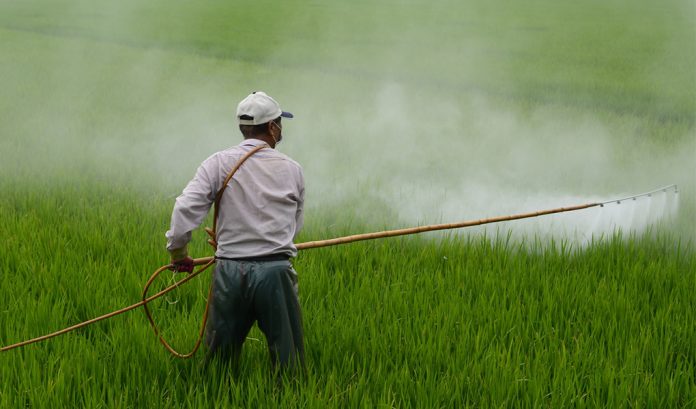
I cannot emphasize enough the damaging effects of pesticides in our digestive systems including the reason why we develop cancer from these chemicals. But before I go to that part of the discussion, let me discuss first how they got there in the first place.
Firstly, let’s explain what are the different classes of pesticides. Pesticides are chemicals that are used to “control, kill or repel” certain types of microorganisms including plants and animals that are considered as pests. Herbicides kill weeds that deprive your crops of nutrients. Fungicides prevent mold and mildew from spreading on your crops. And Insecticides basically destroy any insect that feeds on your crops.
Pesticides in your home
Well, the idea was to keep these pesticides outside of the home so it does not endanger your families’ health. But the reality is, pesticides can also be airborne. And because they mix with the soil when the crops are watered or the rains come down, they also go down to the water table beneath the ground and mix with our groundwater.
In fact, residues of these chemicals are everywhere in the environment. It is said that there are at least 70 popularly used pesticides in every aspect of our lives – in homes, hospitals, workplaces, schools and our food supply of humans and animals. It means you have residual toxins not just inside your home but IN YOU as well.
Even though the Environmental Protection Agency (EPA) has set limits on pesticide use in the USA (considering that the EPA is also the government agency that approved their use), Americans still ingest crops like corn and soybean which are GMO foods and therefore, are genetically altered as well as pesticide-ridden. Some are even imported from third world countries like the Philippines.
The Link between Pesticides and Cancer
Pesticides leave chemical residues on our food – and that includes the Philippines! For example, Monsanto’s Roundup the most popular herbicide in the world pestered our vegetables and fruits. When people consume the pesticide-ridden vegetables and fruits, the chemicals kill the “good bacteria in our digestive system” and destroys our immune system as well. This causes damaged microbiome, reason for unbalances to our body’s immune system and this leads to possible disease formation.
A trillions different microorganisms in our internal tract that helps food to digest and protect the organs from harmful bacteria called good bacteria (“human microbiome”).
This microbiome composed of trillions of microorganisms in our gut work in harmony with our immune system to fight and prevent disease in the body. Now as long as we eat right and consume the proper kind of nutrients, plus maintain a healthy digestive system for proper waste elimination and excretion, we don’t have to worry about contracting any disease like cancer or gastrointestinal diseases.
Unfortunately, when we do ingest these chemical residues of pesticides, it compromises our gut microbiome. Damaged microbiome causes unbalances in our immune system and leads to possible disease formation.
Of course, other things can send our body haywire, such as processed foods, chronic stress, sleeplessness, and the effects of pharmaceutical drugs like antibiotics (they kill some of our good bacteria aside from the bad ones if taken in longer periods).
Gut dysbiosis or the failure of our microbiome to sync with our immune system in the body can also lead to cancer in other parts of the body, such as the breast or liver.
How to Protect against Pesticides
Pesticides can be everywhere in our food. If you can’t get organic vegetables and fruits, you should wash them very thoroughly to keep the pesticides out. In our family, we wash them under running water for a few minutes until totally soaked and cleaned. Then we soak them in a bowl of water with salt or rock salt for about an hour. Just to be sure that the pesticides are all out you can wash them thoroughly again.
Or you can soak your veggies and fruits in the sink full of water for an hour. Add one-half cup of white vinegar and let it soak. Then rinse them thoroughly after an hour.
By this way, we can hopefully remove most of the pesticide residues on the veggies and fruits.
How about you – do you have another way of keeping pesticides away from your vegetables and fruits?








